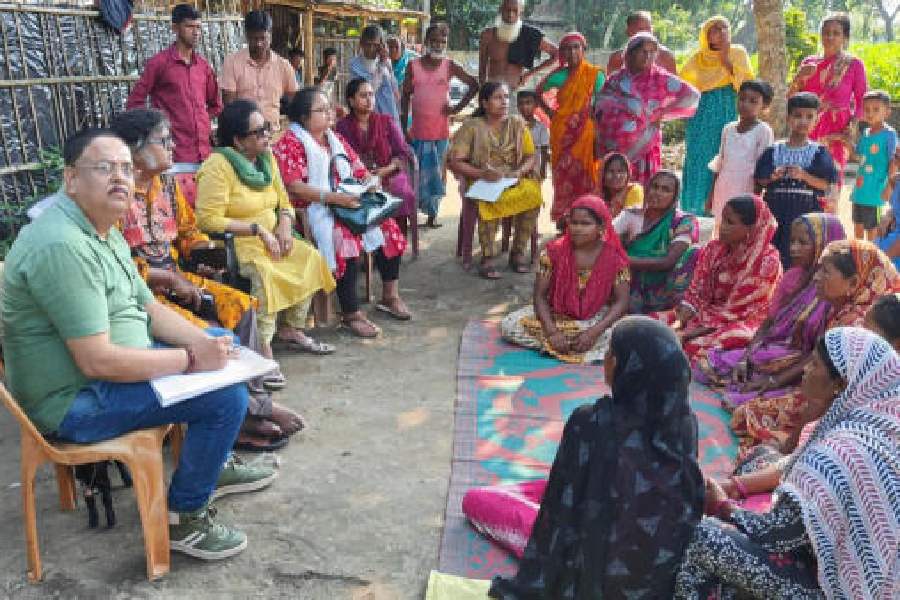The West Bengal Commission for Women (WBCW) has initiated a programme in north Bengal for women residing near the state's international borders. The visits began from Fulbari, on the outskirts of Siliguri, and in the neighbouring Jalpaiguri district.
The initiative, spearheaded by the commission’s chairperson Leena Gangopadhyay, seeks to assess the ground realities faced by women in border areas and implement proactive measures to safeguard their rights and well-being.
Leena said that the commission is focused on identifying vulnerabilities in border areas, particularly those related to trafficking, domestic violence, and access to government schemes.
“There is an urgent need to engage with women directly and raise awareness about their safety and legal protections. Our commission’s outreach programme has expanded rapidly from Thursday, covering parts of Darjeeling, Jalpaiguri and Cooch Behar districts. So far, we have visited nine gram panchayats under this initiative,” she said.
A source said that teams include officials from the Women’s Commission, police, district child protection units, block development officers and social welfare departments.
“The campaign also reached a tea estate in the Dooars on Saturday, near the India-Bhutan border. So far, more than 1,500 women have been sensitised about a range of issues, including their safety, legal rights, trafficking risks, health awareness, and access to government welfare schemes,” said a source.
The teams also reviewed whether women in these regions receive the full benefits of government programmes.
Leena stated that they have observed a troubling shift in trafficking trends.
“Earlier, young girls were trafficked forcefully. Now, we are witnessing girls being lured into leaving their homes with promises of employment, only to find themselves trapped in exploitative conditions,” she said.
She highlighted the importance of coordinated efforts involving anganwadi workers, law enforcement agencies, and other ground-level functionaries in tackling the evolving nature of these threats.
“The outreach is not limited to fact-finding. It aims to set in motion a more responsive and inclusive framework to protect women from both traditional and emerging threats. Health concerns, especially reproductive and maternal issues, have also surfaced during the field visits, prompting the commission to plan targeted awareness campaigns in collaboration with the health department,” said a commission member.
“The commission is closely involved with local administration. By including BDOs, police personnel, and child welfare officials in each visit, the commission hopes to ensure continuity of support even after the conclusion of the immediate outreach,” the member added.
Amit Sarkar, the president of the Darjeeling District Legal Aid Forum, said these intensive visits are necessary for women residing in the border areas of north Bengal.
“They will now get all-around protection and timely intervention in case of any crisis,” he said.
Following the completion of the visits in the three districts, WBCW will compile its findings and prepare a detailed report.
“This report will serve as a foundation for launching more structured interventions and shaping future policy recommendations aimed at improving the safety and rights of women in these vulnerable regions,” said a source.










